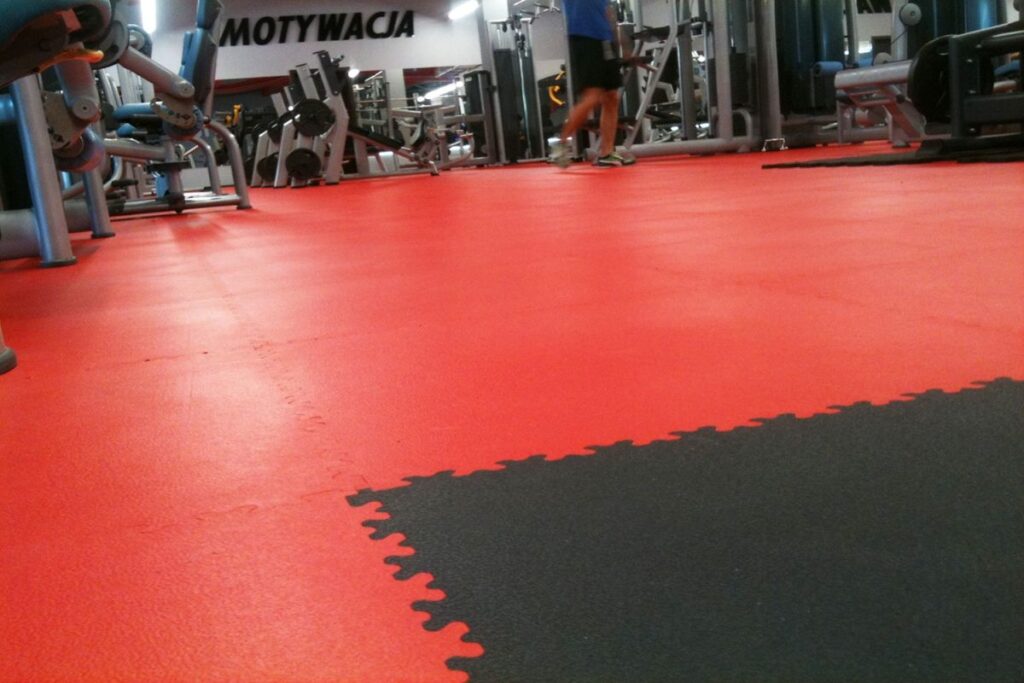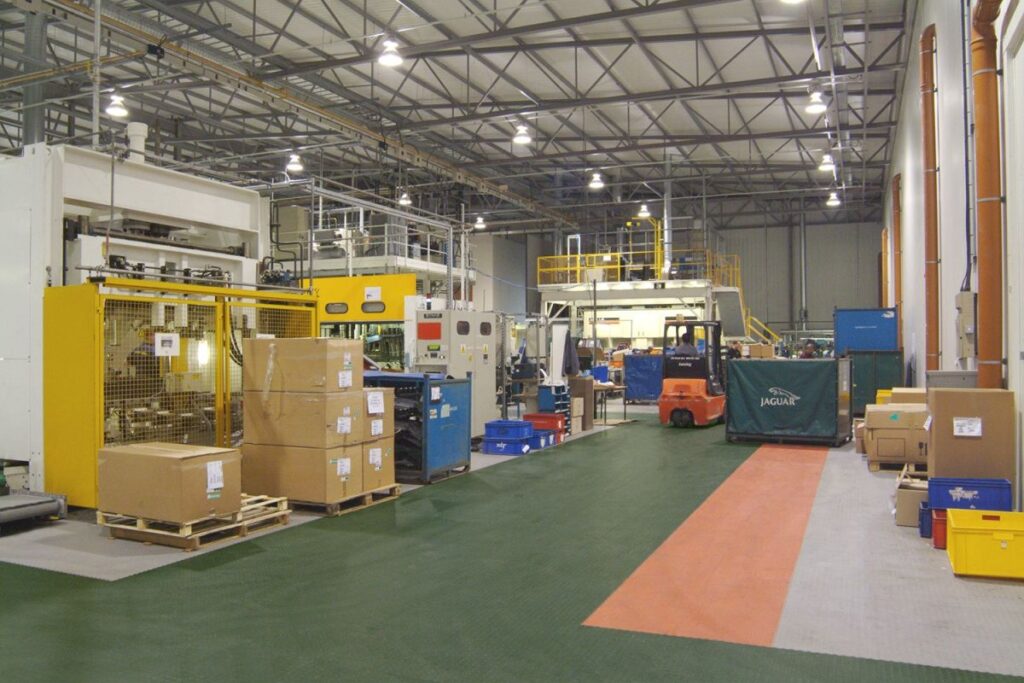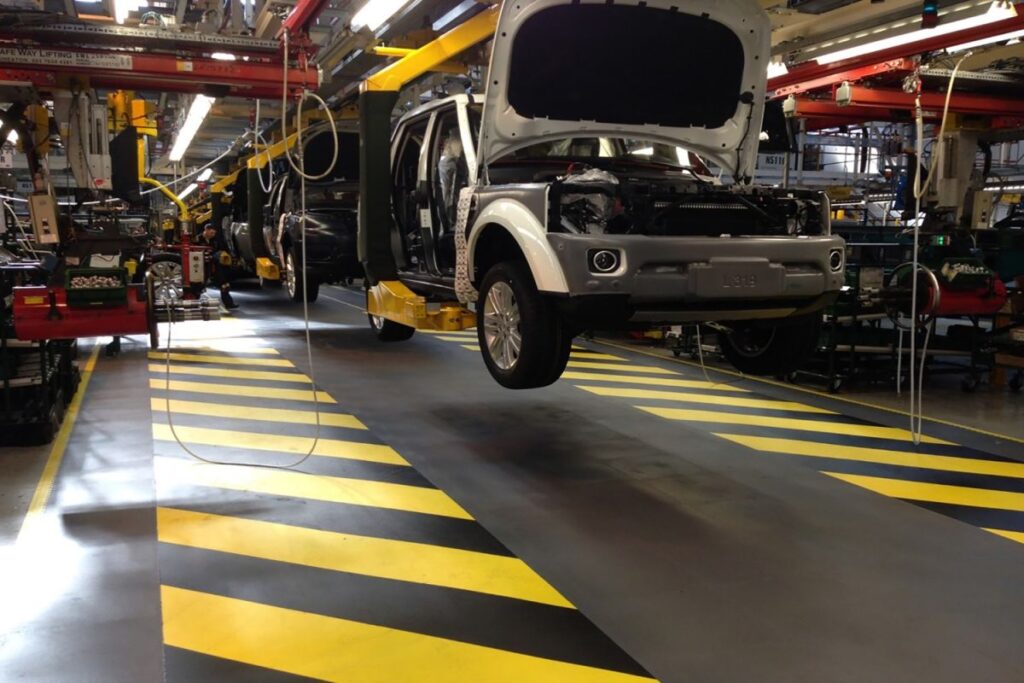Whether you are refurbishing your gym or setting up a new one, the most important thing to get right from the beginning is the flooring.
The floor is the most used part of any gym, even if your clients just walk around on it oblivious to its importance. They would certainly notice if the floor was not comfortable to workout on or was unstable. But just because your clients take the floor for granted, it doesn’t mean that you should.
You really need to be thinking about your gym flooring at the planning stage as different areas may require different specialist flooring. For example if you start installing machines without first installing the correct flooring, you could wind up in a bit of a mess. Your machines, weight racks and benches need to be secure, you can’t risk having the wrong flooring and a machine sliding or tipping over as a result.
We are going to take a look now at the top 6 things you should consider when looking at installing purpose built gym flooring.
- Your existing floor surface
It is important to consider the type of floor you currently have in order to know what will need to be done to it before you lay specialist gym flooring. Are you laying on a concrete base, a wooden base or do you need to screed the floor prior to laying new flooring.
Some flooring requires underlay and this will need to be suitable to lay on top of the existing floor. Part of this is down to the thickness required. Certain areas will endure more heavy impact and may require a thicker underlay to absorb the impact without damaging the floor or the equipment. Free weights are a good example of an area that may require thicker impact absorption underlay.
- Number of gym users
You would hope that there would be a fairly large number of people using the gym. This means a lot of traffic treading around your gym on a daily basis. Shoes and weights banging and scuffing the floor can do a lot of damage, so your flooring needs to be durable enough to cope with it.
- Weights
We have mentioned free weights a couple of times already, but they are definitely one of the most damaging things to a floor.
When gym users drop weights they are going to have an impact on the floor. If your floor is not shock absorbent, but wood or even concrete, you are likely to get cracks, holes and dents. Your floor could end up costing you a lot to replace as a result of this kind of damage.
- Moisture
You may not think of this is an issue if your gym doesn’t have a pool or sauna, but think of the number of sweaty bodies working out on a daily basis. That is a lot of moisture dripping onto the floor and in the atmosphere.
If you do have a pool or sauna and let’s not forget the shower rooms, then you are increasing that volume of moisture even more. So it is a good idea to ensure your floors are waterproof where needed and at the very least non absorbent. The smell of damp is bad enough, sweaty body odour damp is even worse, so try to get a floor that is not going to absorb that stench.
- Gym machinery
The other factor that really needs to be considered is the machines you are installing in the gym. There are dozens of different types from static bikes to pull down presses, rowing machines, treadmills and so much more besides. All of these machines bear down into the floor and cause stress and strain on the surface.
Let’s not forget that your machinery has a life cycle. You will need to replace them as they wear out, so do you want to have to replace your whole flooring at the same time? A good gym floor should out live the life cycle of most of the machines.
- Budget
You may consider buying a cheaper flooring to save money on the initial set up of your gym. But this could turn out to be false economy. As mentioned above, do you want to have to replace your flooring every time you update your machinery? In the long run, this will end up costing you far more.
The most important thing to consider is what each area is going to be used for specifically and lay the flooring to suit that area.
What do we offer?
The R-Tile range is the perfect solution for any fitness centre or home gym. We combine a professional finish with a wide choice of vibrant colours. All have anti-slip surfaces that can be installed on top of any floor with little or no subfloor preparation.
Our 7 mm floor tile is designed to cope with the pressures of heavy gym equipment and the impact of heavy weight drops.
So why not contact us today to see what we can do for you.



